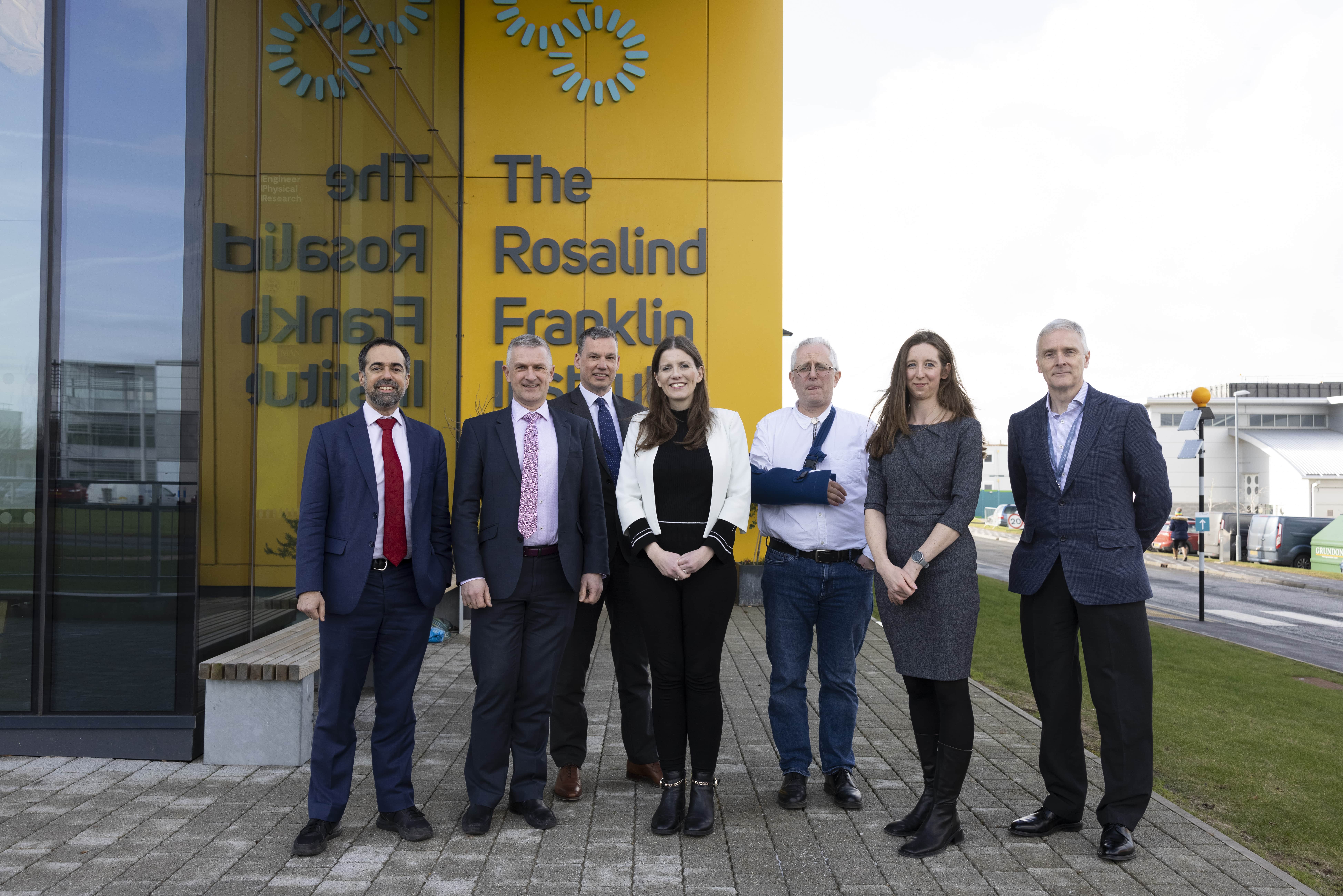
The Rosalind Franklin Institute celebrates funding with visit from new minister
Newly appointed Science, Innovation and Technology Secretary Michelle Donelan visited The Rosalind Franklin Institute to set out her plans to revolutionise the Government’s approach to science and technology, putting it at the very top of the Government agenda.
The UK institute for technology in life science, secured renewed core funding for the next three years from UK Research and Innovation’s Engineering and Physical Sciences Research Council (EPSRC), and launched a refreshed strategy to continue the development of the Franklin’s unique technologies.
Michelle Donelan said: “Science and technology has the potential to change our world beyond recognition.
“A brand new and dedicated department for Science, Innovation and Technology will be the engine room behind the Government’s plan to grow the economy – improving the lives of everyone in the UK through rapid growth, better jobs and major discoveries that advance the health, digital landscape and prosperity of society.”
Professor James Naismith, Director of the Franklin, says, “Since 2018, we’ve built the building to time and on budget, staffed it, installed beyond state-of-the-art instrumentation — which we are helping to develop — and published some of the world’s most cited papers.”
“In Phase 2 we really want to push forward our vision to see life at the atomic scale from molecules, to cells, and into tissues, and accelerate the development of novel diagnostic and therapeutic products by creating and combining our advanced technologies.”
The Franklin will build on early successes in generating clinically relevant agents against SARS-CoV-2 during the pandemic and advancing electron imaging development. They have also established key strategic collaborations with international instrument manufacturers, Thermo Fisher Scientific, JEOL, Bruker, and Waters.
The technologies under development at the Franklin will be utilised to address major challenges in health – such as characterising the early signs of degenerative diseases such as Alzheimer’s disease. In the future, using real patient tissue samples will enable disease dynamics, drug effects and diagnostics to be carried out with atomic level insight.
Bronwen Foster, a PhD student at the Franklin and UCL, said “My work looks at characterising the early signs of Alzheimer’s disease. This project is only possible at the Franklin because of the unique technologies under development here. Also, the combination of expertise found here allows me to develop my skills in a range of areas from electron microscopy imaging, mass spectrometry and artificial intelligence and apply them to explore the brain – providing a different perspective on the disease.”
In the five years since opening, the Franklin has participated in projects leveraging more than £100m in grants for the UK, including a £25m Wellcome grant to revolutionise cryo-electron microscopy. Against our pandemic work we have attracted further grants, including the ‘Disease X’ grant, enabling us to raise agents even more rapidly against an emerging threat. The capability to rapidly raise, image and refine makes them ideal agents in a ‘100 day challenge’ in the early days on an emerging threat.
We have a unique opportunity to observe disease processes in a new way which when linked with clinical practice in the coming years will allow earlier and better diagnostics for cancer, alongside other diseases. This will be made possible by the ability to conduct subcellular proteomics combined with electron imaging.


